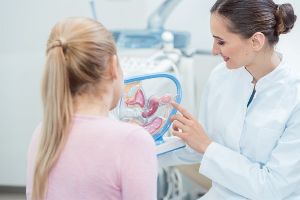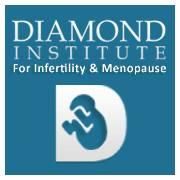What Are the Different Types of Infertility?

There are countless reasons why a couple may have trouble getting pregnant. Age, genetics, environmental factors, health issues, past surgeries, and previous pregnancy complications can all play a role, and either partner might be dealing with infertility. The guide below explains everything you need to know about treating fertility issues in men and women.
Infertility in Men
In men, infertility is most commonly the result of abnormal sperm. The shape, movement, and concentration of sperm can affect the chances of conception. A lack of quality sperm may be caused by many factors, such as chemotherapy, heavy drinking or smoking, hormonal disorders, and trauma to the testes. Ejaculation disorders like premature ejaculation can make fertilizing the egg difficult. Diabetes, certain autoimmune disorders, and other medical conditions may also cause problems.
Obstructive azoospermia, the deficiency of sperm in the semen due to a blockage between the testicles and penis, can lead to male infertility. This may be the result of inflammation, a vasectomy, or improperly developed vas deferens, epididymis, and seminal vesicles. If a man has undergone a reverse vasectomy, he may have sperm antibodies that prevent sperm production and lower sperm motility.
Infertility in Women

Any issue that affects the uterus, ovaries, or fallopian tubes can cause fertility issues in women. For example, ovulation disorders are the most common cause of female infertility. Polycystic ovarian syndrome (PCOS), primary ovarian insufficiency, and excess production of prolactin by the pituitary gland can disrupt regular ovulation. In general, an imbalance of sex hormones can prevent various stages of conception and pregnancy from occurring properly.
Damaged fallopian tubes, which can be caused by pelvic or abdominal surgeries or pelvic inflammatory disease, prevent fertilized eggs from reaching the uterus. Growths within the uterine cavity, such as fibroids and polyps, can interfere with the attachment of the embryo. An abnormally shaped uterus can make getting and staying pregnant difficult.
How It's Treated
Treatments are recommended based on the causes of infertility, the age of the female patient (a woman’s fertility declines with age), and how long the couple has been attempting pregnancy. Fertility specialists generally suggest medication, hormonal treatment, assisted reproductive technology (ART), or surgery. Some of these solutions may be used simultaneously.
In vitro fertilization (IVF), a type of ART, in which the eggs are fertilized externally and the embryo is transferred into the uterus, and intrauterine insemination (IUI), in which sperm is delivered directly into the uterus, are the most common procedures for treating fertility. Neither procedure guarantees pregnancy, but they may increase your odds. Every year, about 2.1% of all babies born in the U.S. are conceived using ART.
If you and your partner are ready to bring a child into your life, reach out to Diamond Institute for Infertility & Menopause in Millburn, NJ. This fertility clinic offers a variety of treatment options that can be customized to suit your needs, including IVF procedures, egg freezing, artificial insemination, and surrogacy. Visit their website for more information about available infertility treatments. To begin discussing your options with a compassionate specialist, call (973) 761-5600.
About the Business
Have a question? Ask the experts!
Send your question

